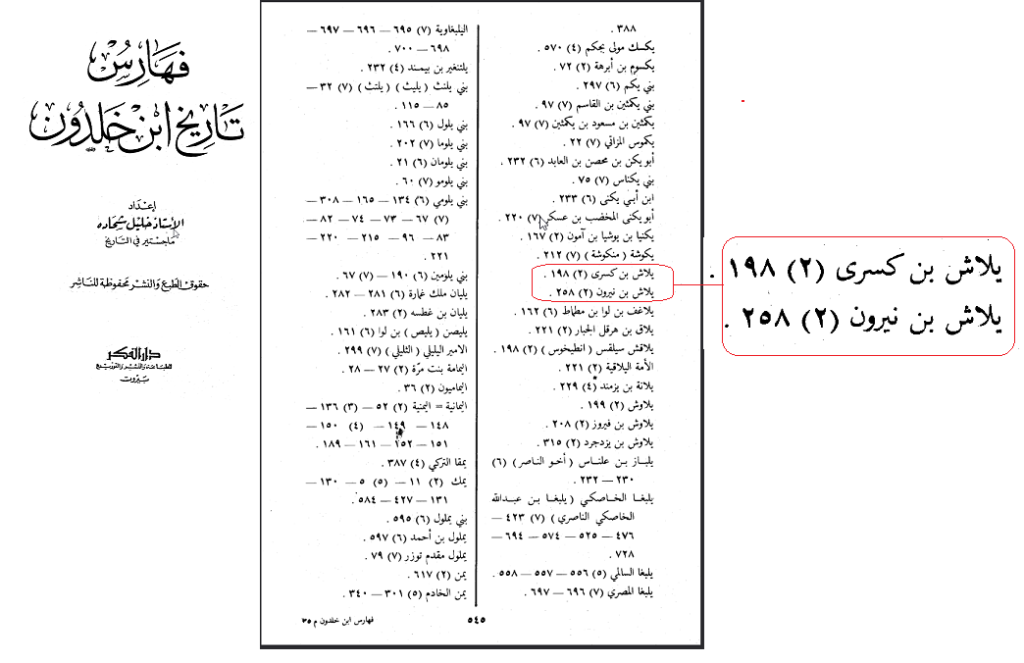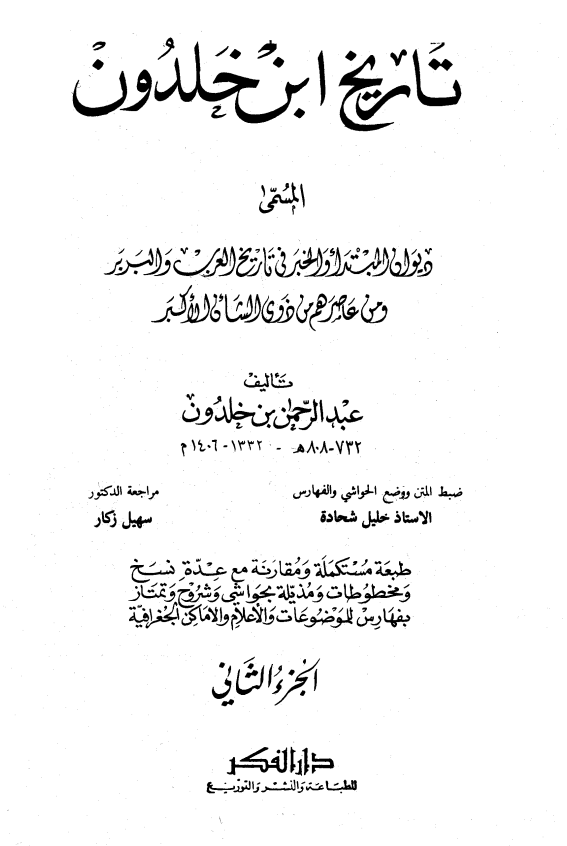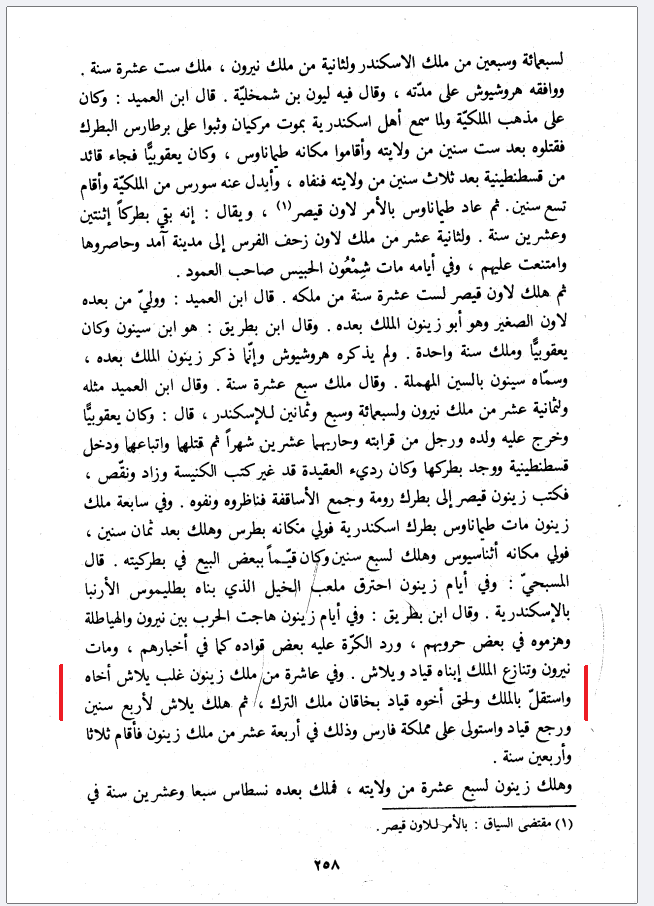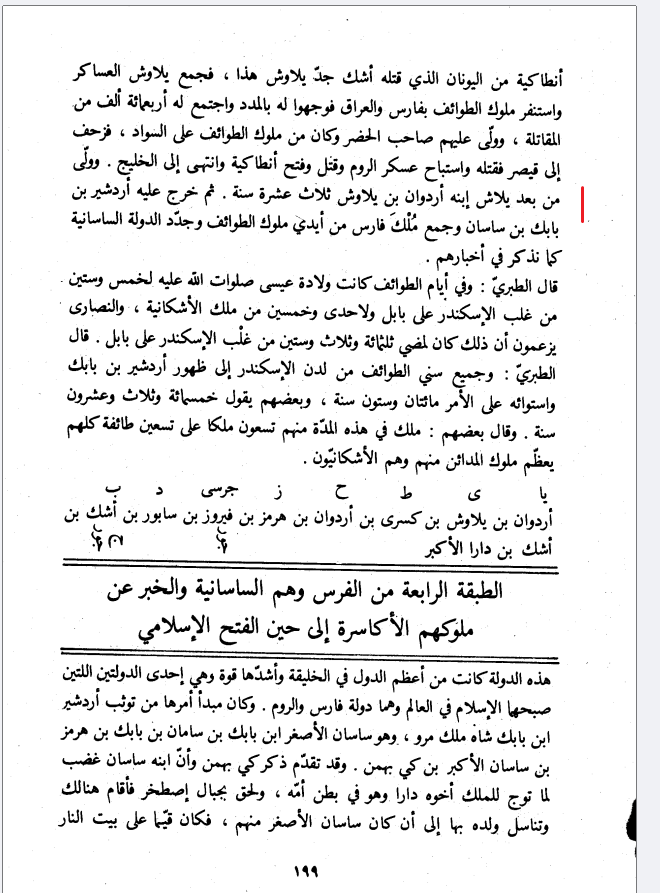One of the lesser-discussed but significant claims made by Mirza Ghulam Ahmad Qadiani of Qadian (1841-1908), the founder of the Ahmadiyya movement (also referred to as Kadiani, Qadianis or Mirzais), concerns a word he said was divinely revealed to him: “Yalash.” According to Mirza, this word was a previously unknown name of God, never before seen in any lexicon or heard from any tongue. He claimed that this term had been revealed to him alone, as a sign of his special status as a prophet or mujaddid (reformer).[1] However, historical and linguistic evidence strongly challenges the uniqueness and divine origin of this word. In this article, we explore the sources that mention the term “Yalash,” how it was known prior to Mirza’s claim, and what these findings suggest about the credibility of his revelation.
References in Ibn Khaldun’s Historical Work
The name “Yalash” appears in one of the most renowned and respected Islamic historical texts, Tārīkh Ibn Khaldūn (The Book of Lessons). In Volume 2, two individuals are cited by the name “Yalash”:
- Yalash bin Kisra (page 199)[2]
- Yalash bin Nairon (page 258)[3]
These references are of particular significance. They indicate that the name “Yalash” was already in circulation in Islamic historiography long before Mirza Ghulam Ahmad’s time (late 19th to early 20th century). As someone who had access to classical Islamic sources and often quoted from Arabic and Persian historical literature, it is highly unlikely that Mirza was unaware of this name’s prior existence.




Linguistic Origins in Turkic Languages
Further complicating Mirza’s claim is the presence of the word “Yalash” in Uzbek and Uyghur, two Turkic languages spoken across Central Asia. In these languages, “yalash” means “to lick”, a common verb with no spiritual or divine connotation. This definition is widely attested in modern and classical dictionaries of these languages.[4]

Mirza Ghulam Ahmad’s Central Asian Ancestry
Interestingly, Mirza himself claimed descent from a Mughal family that had migrated to India from Central Asia.[5] This point becomes relevant when considering the likelihood of his exposure to Turkic words or names either through family heritage, cultural retention, or historical texts with Central Asian origins. If “Yalash” was a known term in regions where his ancestors lived, it is entirely possible that Mirza either encountered the term consciously or subconsciously absorbed it through cultural osmosis.
Was It a Lie or a Delusion?
Given this evidence, there are two plausible interpretations of Mirza Ghulam Ahmad’s claim that “Yalash” was a uniquely revealed divine name:
- Intentional Deception: Mirza may have encountered the name in historical or linguistic contexts and later presented it as a divine revelation to support his prophetic claims, believing it would go unnoticed.
- Cognitive Distortion or Psychological Condition: It is also possible that Mirza genuinely believed in the uniqueness of “Yalash” due to a psychological condition affecting memory or perception. Historical accounts describe him suffering from various illnesses, including neurological symptoms such as severe headaches, hallucinations, and delusional grandeur. Some modern observers speculate that he may have had temporal lobe epilepsy or another neuropsychiatric condition, which can induce religious visions and memory disturbances.[6]
Conclusion
The case of “Yalash” is a revealing example of how historical and linguistic scrutiny can expose the cracks in purported divine revelations. The presence of the name in classical Islamic historiography, its meaning in Central Asian languages, and Mirza Ghulam Ahmad’s own ancestral links to that region all strongly suggest that “Yalash” was neither unknown nor uniquely revealed. Whether by deliberate design or mental confusion, Mirza’s claim about the word “Yalash” cannot stand up to critical examination. It serves as a cautionary example of the need to vet religious claims through the lens of historical and linguistic scholarship.
References
- Ghulam Ahmad, Mirza. Tadhkirah: English translation of the dreams, visions and verbal revelations of Mirza Ghulam Ahmad of Qadian. Rabwah: Islam International Publications.
- Ibn Khaldun. Kitab al-Ibar wa Diwan al-Mubtada’ wa-l-Khabar, Vol. 2, p. 199.
- Ibid., p. 258.
- Uzbek and Uyghur language dictionaries; see also: Clauson, Gerard. An Etymological Dictionary of Pre-Thirteenth Century Turkish. Oxford University Press, 1972.
- Ghulam Ahmad, Mirza. Kitab al-Bariyya (The Book of Vindication), in which he traces his lineage to Mughal ancestry.
- Khan, Nazir Ahmad. A Critical Review of the Life and Claims of Mirza Ghulam Ahmad. Lahore: Idara Isha’at-e-Islam, 1988; also see psychological profiles in Laban, Oliver. Prophets or Madmen?, Ch. 3.